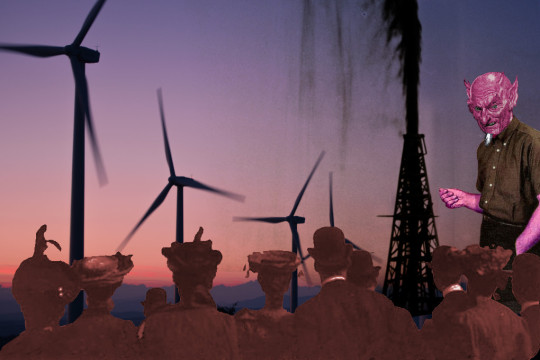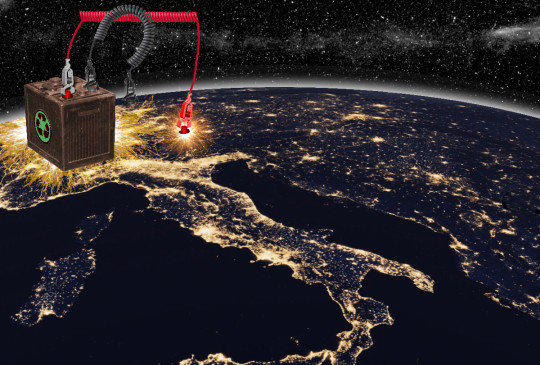#McKibben
Explore tagged Tumblr posts
Text


McKibben
33 notes
·
View notes
Photo
Weird




Akward. s02e02
#awkward#jenna#matty#Jatty#team jatty#jenna hamilton#matty mckibben#awkward jenna#awkward.#awkward matty#mckibben#hamilton
59 notes
·
View notes
Text
LINK FEST: 29 AUGUST 2023

View On WordPress
#august field guide#Austin#climate crisis#community#field guide#France#gardener interview#linkfest#links#McKibben#neighbours#Provence#real estate#vermont#where to live#xeriscaping
0 notes
Text

Rachel McKibbens, from Blud; “the first time”
[Text ID: “Can you imagine it? / A child standing / at the mouth / of the underworld / pleading / for a time-out, / trying to reason / with whatever’s / in charge: / No, no! I never / meant to stay dead. / I simply wanted / a sweeter life.”]
#rachel mckibbens#excerpts#writings#literature#poetry#fragments#selections#words#quotes#poetry collection#typography
2K notes
·
View notes
Text
An end to the climate emergency is in our grasp

On June 20, I'm keynoting the LOCUS AWARDS in OAKLAND.

The problem with good news in the real world is that it's messy. Neat happy endings are for novels, not the real world, and that goes double for the climate emergency. But even though good climate news is complicated and nuanced, that doesn't mean it shouldn't buoy our spirits and fill our hearts with hope.
The big climate news this past week is the National Oceanic and Atmospheric Administration's clarion call about surging CO2 levels – the highest ever – amid a year that is on track to have the largest and most extreme series of weather events in human history:
https://www.noaa.gov/news-release/during-year-of-extremes-carbon-dioxide-levels-surge-faster-than-ever
This is genuinely alarming and you – like me – have probably experienced it as a kind of increase in your background radiation of climate anxiety. Perhaps you – like me – even experienced some acute, sit-bolt-upright-in-bed-at-2AM anxiety as a result. That's totally justifiable. This is very real, very bad news.
And yet…
The news isn't all bad, and even this terrible dispatch from the NOAA is best understood in context, which Bill McKibben provides in his latest newsletter post, "What You Want is an S Curve":
https://billmckibben.substack.com/p/what-you-want-is-an-s-curve
Financier and their critics should all be familiar with Stein's Law: "anything that can't go on forever will eventually stop." This is true outside of finance as well. One of the reasons that we're seeing such autophagic panic from the tech companies is that their period of explosive growth is at an end.
For years, they told themselves that they were experiencing double-digit annual growth because they were "creating value" and "innovating" but the majority of their growth was just a side-effect of the growth of the internet itself. When hundreds of millions of people get online every year, the dominant online services will, on average, gain hundreds of millions of new users.
But when you run out of people who don't have internet access, your growth is going to slow. How can it not? Indeed, at that point, the only ways to grow are to either poach users from your rivals (through the very expensive tactics of massive advertising and sales-support investments, on top of discounts and freebies as switching enticements), or to squeeze your own users for more.
That's why the number of laptops sold in America slowed down. It's why the number of cellphones sold in America slowed down. It's why the number of "smart home" gizmos slowed down.
Even the steepest hockey-stick-shaped exponential growth curve eventually levels off and becomes an S-curve, because anything that can't go on forever will eventually stop.
One way or another, the world's carbon emissions will eventually level off. Even if we drive ourselves to (or over) the brink of extinction and set up the conditions for wildfires that release all the carbon stored in all the Earth's plants, the amount of carbon we pump into the atmosphere has to level off.
Rendering the Earth incapable of sustaining human civilization (or life) is the ultimate carbon reduction method – but it's not my first choice.
That's where McKibben's latest newsletter comes in. He cites a new report from the Rocky Mountain Institute, which shows a major reversal in our energy sources, a shift that will see our energy primarily provided by renewables, with minimal dependence on fossil fuels:
https://rmi.org/insight/the-cleantech-revolution/
The RMI team says that in this year or next, we'll have hit peak demand for fossil fuels (a fact that is consistent with NOAA's finding that we're emitting more CO2 than ever). The reason for this is that so much renewable energy is about to come online, and it is so goddamned cheap, that we are about to undergo a huge shift in our energy consumption patterns.
This past decade saw a 12-fold increase in solar capacity, a 180-fold increase in battery storage, and a 100-fold increase in EV sales. China is leading the world in a cleantech transition, with the EU in close second. Cleantech is surging in places where energy demand is also still growing, like India and Vietnam. Fossil fuel use has already peaked in Thailand, South Africa and every country in Latin America.
We're on the verge of solar constituting an absolute majority of all the world's energy generation. This year, batteries will overtake pumped hydro for energy storage. Every cleantech metric is growing the way that fossil fuels did in previous centuries: investment, patents, energy density, wind turbine rotor size. The price of solar is on track to halve (again) in the next decade.
In short, cleantech growth looks like the growth of other technologies that were once rarities and then became ubiquitous overnight: TV, cellphones, etc. That growth isn't merely being driven by the urgency of the climate emergency: it's primarily a factor of how fucking great cleantech is:
https://rmi.org/wp-content/uploads/2024/05/the_incredible_inefficiency_of_fossils.pdf
Fossil fuels suck. It's not just that they wreck the planet, or that their extraction is both politically and environmentally disastrous. They just aren't a good way to make energy. About a third of fossil fuel energy is wasted in production and transportation. A third! Another third is wasted turning fossil fuels into energy. Two thirds! The net energy efficiency of fossil fuels is about 37%.
Compare that with cleantech. EVs convert electricity to movement with 80-90% efficiency. Heat pumps are 300% efficient (the main fuel for your heat pump is the heat in the atmosphere, not the electricity it draws).
Cleantech is just getting started – it's still in the hockey-stick phase. That means those efficiency numbers are only going up. Rivian just figured out how to remove 1.6 miles of copper wire from each vehicle. That's just one rev – there's doubtless lots of room for more redesigns that will further dematerialize EVs:
https://insideevs.com/news/722265/rivian-r1s-r1t-wiring/
As McKibben points out, there's been a lot of justifiable concern that electrification will eventually use up all our available copper, but copper demand has remained flat even as electrification has soared – and this is why. We keep figuring out new ways to electrify with fewer materials:
https://www.chemanalyst.com/NewsAndDeals/NewsDetails/copper-wire-price-remains-stable-amidst-surplus-supply-and-expanding-mining-25416#:~:text=Global%20Copper%20wire%20Price%20Remains%20Stable%20Amidst%20Surplus%20Supply%20and%20Expanding%20Mining%20Activities
This is exactly what happened with previous iterations of tech. The material, energy and labor budgets of cars, buildings, furniture, etc all fell precipitously every time there was a new technique for manufacturing them. Renewables are at the start of that process. There's going to be a lot of this dematerialization in cleantech. Calculating the bill of materials for a planetary energy transition isn't a matter of multiplying the materials in current tech by the amount of new systems we'll need – as we create those new systems, we will constantly whittle down their materials.
What's more, global instability drives cleantech uptake. The Russian invasion of Ukraine caused a surge in European renewables. The story that energy prices are rising due to renewables (or carbon taxes) is a total lie. Fossil fuels are getting much more expensive, thanks to both war and rampant, illegal price-fixing:
https://www.thebignewsletter.com/p/an-oil-price-fixing-conspiracy-caused
If not for renewables, the incredible energy shocks of the recent years would be far more severe.
The renewables story is very good and it should bring you some comfort. But as McKibben points out, it's still not enough – yet. The examples of rapid tech uptake had big business on their side. America's living rooms filled with TV because America's largest businesses pulled out all the stops to convince everyone to buy a TV. By contrast, today's largest businesses – banks, oil companies and car companies – are working around the clock to stop cleantech adoption.
We're on track to double our use of renewables before the decade is over. But to hold to the (already recklessly high) targets from the Paris Accord, we need to triple our renewables usage. As McKibben says, the difference between doubling and tripling our renewables by 2030 is the difference between "survivable trouble" and something much scarier.
The US is experiencing a welcome surge in utility scale solar, but residential solar is stalling out as governments withdraw subsidies or even begin policies that actively restrict rooftop solar:
https://twitter.com/curious_founder/status/1798049929082097842?s=51
McKibben says the difference between where we are now and bringing back the push for home solar generation is the difference between "fast" and "faster" – that is the difference between tripling renewables by 2030 (survivable) and doubling (eek).
Capitalism stans who argue that we can survive the climate emergency with market tools will point to the good news on renewable and say that the market is the only way to transition to renewables. It's true that market forces are partly responsible for this fast transition. But the market is also the barrier to a faster (and thus survivable) transition. The oil companies, the banks who are so invested in fossil fuels, the petrostates who distort the world's politics – they're why we're not much farther along.
The climate emergency was never going to be neatly solved. We weren't going to get a neat novelistic climax that saw our problems sorted out in a single fell swoop. We're going to be fighting all the way to net zero, and after that, we'll still have decades of climate debt to pay down: fires, floods, habitat loss, zoonotic plagues, refugee crises.
But we should take our wins. Even if we're far from where we need to be on renewables, we're much farther along on renewables than we had any business hoping for, just a few years ago. The momentum is on our side. It's up to us to use that momentum and grow it. We're riding the hockey-stick, they're on that long, flat, static top of the S-curve. Their curve is leveling off and will start falling, ours will grow like crazy for the rest of our lives.

If you'd like an essay-formatted version of this post to read or share, here's a link to it on pluralistic.net, my surveillance-free, ad-free, tracker-free blog:
https://pluralistic.net/2024/06/12/s-curve/#anything-that-cant-go-on-forever-eventually-stops
#pluralistic#s-curves#bill mckibben#climate emergency#renewables#energy transition#energy#solar#wind#fossil fuels#climate
907 notes
·
View notes
Text



Orpheus Leading Eurydice from the Underworld, Jean-Baptiste-Camille Corot
eurydice, sarah ruhl // francis forever, mitski // hamlet, william shakespeare // the worm king's lullaby, richard siken // i swear somewhere this works, trista mateer // walking home, marie howe // amy & roger's epic detour, morgan matson // the epic of gilgamesh // from june to december - summer villanelle, wendy cope // eurydice, sarah ruhl
outhouse, rachel mckibbens // hamlet, william shakespeare // the great believers, rebecca makkai // a little life, hanya yanagihara // introduction to quantum theory, franny choi // concerning the book that is the body of the beloved, gregory orr // the song of achilles, madeline miller // i swear somewhere this works, trista mateer // les miserables, victor hugo // eurydice, sarah ruhl
the epic of gilgamesh // eurydice, sarah ruhl // in the name of love, katie maria // the great believers, rebecca makkai // i swear somewhere this works, trista mateer // the time traveller's wife, audrey niffenegger // hamlet, william shakespeare // on the death of summer and baptismal promises, w.r. // amy & roger's epic detour, morgan matson // road to hell (reprise), anaïs mitchell
#web weaving#parallels#orpheus and eurydice#jean baptiste camille corot#sarah ruhl#mitski#hamlet#william shakespeare#richard siken#trista mateer#marie howe#morgan matson#gilgamesh#wendy cope#rachel mckibbens#rebecca makkai#a little life#hanya yanagihara#franny choi#gregory orr#tsoa#madeline miller#les mis#victor hugo#the time travelers wife#hadestown#anais mitchell#hoooo boy#tina talks
944 notes
·
View notes
Text






I remember wishing I could be boiled like water and made pure again
Rachel Mckibbens//noquietrevolution//Jeffrey McDaniel//Viktor from Arcane
#arcane#viktor#web weaving#mine#parallels#quotes#words#godhood#on losing humanity#corruption#divinity#viktor arcane#arcane season 1#arcane season 2#rachel mckibbens#shiv#jeffrey mcdaniel#disasterology#hexcore#arcane s2#arcane s1#fabricated divinity
82 notes
·
View notes
Text

Mike Luckovich
* * * *
"Russia, Russia, Russia. It's always Russia!"
October 9, 2024
Robert B. Hubbell
On a day of major political stories, the Earth is reminding us that we are guests on this planet subject to our collective good behavior over the long term. Hurricane Milton is threatening Florida like no other storm in the last century. Millions are (wisely) evacuating in the face of strong winds and a record storm surge that will inundate coastal areas.
Two months ago, Trump joked about human-caused climate change creating “more beachfront property.” In 2021, 175 House Republicans and 35 Senate Republicans voted to defund FEMA. See MTN News, A Whopping 175 House Republicans Voted Against FEMA Funding in 2021. Many of those lawmakers are now criticizing FEMA for being overwhelmed and under-resourced. Last week, Speaker Mike Johnson refused to call a special session of the House to enact emergency supplemental funding for FEMA.
Jokes aside, the substantive policy of the Republican Party is to promote fossil fuels and undermine green energy. See Center for American Progress, Project 2025 Would Jeopardize Global Climate Action. One of Trump's first acts in 2017 was to serve notice that the US would withdraw from the Paris Climate Accords, and one of Joe Biden’s first acts was to rescind that notice. If Trump is re-elected, we should expect that Trump will again seek to withdraw from global efforts to fight human-caused climate change. See NBC News, Mike Johnson won't commit to bringing House back before the election for more hurricane relief.
The weather is not the climate and record-breaking weather events are not (in themselves) climate change. But acceleration in global climate trends over time are evidence of human caused climate change. Indeed, the tendency of hurricanes to rapidly increase in intensity—like Hurricane Milton—is part of a new trend in hurricane behavior. See NBC News, Hurricane Milton's rapid intensification is part of a climate-fueled trend.
Climate change is maddeningly difficult because its effects are difficult to track—until they are not. We may be living through one of those moments in which the effects of climate change are undeniably manifest. The question facing us is whether we have the capacity to maintain our concern and sense of urgency after the water has receded and the news crews have moved to the next breaking story. We need the ability to engage in long-term thinking and the patience to allow solutions to work over decades (or longer).
Many worthy and effective organizations are focused on fighting human-caused climate change. I have previously endorsed and appeared before Third Act, an organization started by Bill McKibben. Third Act describes itself as “a community of Americans over sixty determined to change the world for the better. Third Act harnesses an unparalleled generational power to safeguard our climate and democracy.” Check out Third Act—or highlight your climate focused organization in the Comments section.
In the meantime, my wife and I express our concern and empathy for the hundreds of thousands of Floridians affected by Hurricane Milton. Be safe and follow the guidance of authorities!
[Robert B. Hubbell Newsletter]
#Mike Luckovich#hurricane#FEMA#GOP lies#climate science#climate emergency#climate change#Robert B. Hubbell Newsletter#Robert B. Hubbell#Third Act#Bill McKibben#Hurricane Milton
95 notes
·
View notes
Text






Love in the Grocery Store
"The Last Time", Rachel McKibbens// A Letter to Momo// "On the Intimacy of the Mundane", Eve Lion// Home of the Brave, Katherine Applegate//
#web weaving#poetry#prose#spilled ink#intertextuality#painting#spilled words#collage#rachel mckibbens#a letter to momo#eve lion#katherine applegate#grocery store#on the Mundane#on love#dont tell my friends#i made this because a. i love grocery shopping b. i work at a grocery store but also c. i love sharing experiences with strangers#i have never fallen in love with anyone like i have a stranger#and no where is the love shared between strangers more evident than at the grocery store#here let me help you reach the top shelf#you dropped this#i love your hair#IT'S ALL LOVE GUYS
538 notes
·
View notes
Text
You have my permission not to love me. I am a cathedral of dead bolts & I'd rather burn myself down than change the locks.
Rachel McKibbens, "letter from my brain to my heart," blud
#rachel mckibbens#poets on tumblr#dark academia#spilled poetry#aesthetic#spilled ink#spilled thoughts
362 notes
·
View notes
Text

“I etch my own face upon my wicked flesh. I am my own devastating god.” - Rachel McKibbens, from Women of Resistance: Poems for a New Feminism
Image: Longlegs (2024)
#longlegs 2024#rachel mckibbens#poetry#film#literature#quotes#dark academia#religious imagery#religious trauma#horror
10 notes
·
View notes
Text

McKibben
40 notes
·
View notes
Text

Beau Mirchoff as Matty McKibben ▷
#beau mirchoff#top 10 actors#gif#edit#beau mirchoff gif#awkward#awkward gif#matty mckibben#msjb#edits 2024#actor#american#hollywood#comedy
7 notes
·
View notes
Text
these mfs were the original Jeremiah, Belly, & Conrad frfr

#For people that don’t know this is a show called “Awkward.” It’s on paramount + 🫡��#the summer i turned pretty x reader#the summer i turned pretty spoilers#the summer i turned pretty#jeremiah fisher#conrad fisher#belly conklin#tsitp#awkward.#jake rosati#jenna hamilton#matty mckibben
58 notes
·
View notes
Text

Rachel McKibbens, from Blud; “poem written with a sawed-off typewriter”
[Text ID: “Some of us vanish / out of habit, guided / by some blood-orchestral pulse—”]
#rachel mckibbens#vanishing#excerpts#writings#literature#poetry#fragments#selections#words#quotes#poetry collection#typography
753 notes
·
View notes
Text
Circular battery self-sufficiency

I'm coming to DEFCON! On FRIDAY (Aug 9), I'm emceeing the EFF POKER TOURNAMENT (noon at the Horseshoe Poker Room), and appearing on the BRICKED AND ABANDONED panel (5PM, LVCC - L1 - HW1–11–01). On SATURDAY (Aug 10), I'm giving a keynote called "DISENSHITTIFY OR DIE! How hackers can seize the means of computation and build a new, good internet that is hardened against our asshole bosses' insatiable horniness for enshittification" (noon, LVCC - L1 - HW1–11–01).

If we are going to survive the climate emergency, we will have to electrify – that is, transition from burning fossil fuels to collecting, storing, transmitting and using renewable energy generated by e.g. the tides, the wind, and (especially) the Sun.
Electrification is a big project, but it's not an insurmountable one. Planning and executing an electric future is like eating the elephant: we do it one step at a time. This is characteristic of big engineering projects, which explains why so many people find it hard to imagine pulling this off.
As a layperson, you are far more likely to be exposed to a work of popular science than you are a work of popular engineering. Pop science is great, but its role is to familiarize you with theory, not practice. Popular engineering is a minuscule and obscure genre, which is a pity, because it's one of my favorites.
Weathering the climate emergency is going to require a lot of politics, to be sure, but it's also going to require a lot of engineering, which is why I'm grateful for the nascent but vital (and growing) field of popular engineering. Not to mention, the practitioners of popular engineering tend to be a lot of fun, like the hosts of the Well That's Your Problem podcast, a superb long-form leftist podcast about engineering disasters (with slides!):
https://www.youtube.com/@welltheresyourproblempodca1465
If you want to get started on popular engineering and the climate, your first stop should be the "Without the Hot Air" series, which tackles sustainable energy, materials, transportation and food as engineering problems. You'll never think about climate the same way again:
https://pluralistic.net/2021/01/06/methane-diet/#3kg-per-day
Then there's Saul Griffith's 2021 book Electrify, which is basically a roadmap for carrying out the electrification of America and the world:
https://pluralistic.net/2021/12/09/practical-visionary/#popular-engineering
Griffith's book is inspiring and visionary, but to really get a sense of how fantastic an electrified world can be, it's gotta be Deb Chachra's How Infrastructure Works:
https://pluralistic.net/2023/10/17/care-work/#charismatic-megaprojects
Chachra is a material scientist who teaches at Olin College, and her book is a hymn to the historical and philosophical underpinnings of infrastructure, but more than anything, it's a popular engineering book about what is possible. For example, if we want to give every person on Earth the energy budget of a Canadian (like an American, but colder), we would only have to capture 0.4% of the solar energy that reaches the Earth's surface.
Now, this is a gigantic task, but it's a tractable one. Resolving it will require a very careful – and massive – marshaling of materials, particularly copper, but also a large number of conflict minerals and rare earths. It's gonna be hard.
But it's not impossible, let alone inconceivable. Indeed, Chachra's biggest contribution in this book is to make a compelling case for reconceiving our relationship to energy and materials. As a species, we have always treated energy as scarce, trying to wring every erg and therm that we can out of our energy sources. Meanwhile, we've treated materials as abundant, digging them up or chopping them down, using them briefly, then tossing them on a midden or burying them in a pit.
Chachra argues that this is precisely backwards. Our planet gets a fresh supply of energy twice a day, with sunrise (solar) and moonrise (tides). On the other hand, we've only got one Earth's worth of materials, supplemented very sporadically when a meteor survives entry into our atmosphere. Mining asteroids, the Moon and other planets is a losing proposition for the long foreseeable future:
https://pluralistic.net/2024/01/09/astrobezzle/#send-robots-instead
The promise of marshaling a very large amount of materials is that it will deliver effectively limitless, clean energy. This project will take a lot of time and its benefits will primarily accrue to people who come after its builders, which is why it is infrastructure. As Chachra says, infrastructure is inherently altruistic, a gift to our neighbors and our descendants. If all you want is a place to stick your own poop, you don't need to build a citywide sanitation system.
What's more, we can trade energy for materials. Manufacturing goods so that they gracefully decompose back into the material stream at the end of their lives is energy intensive. Harvesting materials from badly designed goods is also energy intensive. But if once we build out the renewables grid (which will take a lot of materials), we will have all the energy we need (to preserve and re-use our materials).
Our species' historical approach to materials is not (ahem) carved in stone. It is contingent. It has changed. It can change again. It needs to change, because the way we extract materials today is both unjust and unsustainable.
The horrific nature of material extraction under capitalism – and its geopolitics (e.g. "We will coup whoever we want! Deal with it.") – has many made comrades in the climate fight skeptical (or worse, cynical) about a clean energy transition. They do the back-of-the-envelope math about the material budget for electrification, mentally convert that to the number of wildlife preserves, low-income communities, unspoiled habitat and indigenous lands that we would destroy in the process of gathering those materials, and conclude that the whole thing is a farce.
That analysis is important, but it's incomplete. Yes, marshaling all those materials in the way that we do today would be catastrophic. But the point of a climate transition is that we will transition our approach to our planet, our energy, and our materials. That transition can and should challenge all the assumptions underpinning electrification doomerism.
Take the material bill itself: the assumption that a transition will require a linearly scaled quantity of materials includes the assumption that cleantech won't find substantial efficiencies in its material usage. Thankfully, that's a very bad assumption! Cleantech is just getting started. It's at the stage where we're still uncovering massive improvements to production (unlike fossil fuel technology, whose available efficiencies have been discovered and exploited, so that progress is glacial and negligible).
Take copper: electrification requires a lot of copper. But the amount of copper needed for each part of the cleantech revolution is declining faster than the demand for cleantech is rising. Just one example: between the first and second iteration of the Rivian electric vehicle, designers figured out how to remove 1.6 miles of copper wire from each vehicle:
https://insideevs.com/news/722265/rivian-r1s-r1t-wiring/
That's just one iteration and one technology! And yeah, EVs are only peripheral to a cleantech transition; for one thing, geometry hates cars. We're going to have to build a lot of mass transit, and we're going to be realizing these efficiencies with every generation of train, bus, and tram:
https://pluralistic.net/2024/02/29/geometry-hates-uber/#toronto-the-gullible
We have just lived through a massive surge in electrification, with unimaginable quantities of new renewables coming online and a stunning replacement of conventional vehicles with EVs, and throughout that surge, demand for copper remained flat:
https://www.chemanalyst.com/NewsAndDeals/NewsDetails/copper-wire-price-remains-stable-amidst-surplus-supply-and-expanding-mining-25416#:~:text=Global%20Copper%20wire%20Price%20Remains%20Stable%20Amidst%20Surplus%20Supply%20and%20Expanding%20Mining%20Activities
This isn't to say that cleantech is a solved problem. There are many political aspects to cleantech that remain pernicious, like the fact that so many of the cleantech offerings on the market are built around extractive financial arrangements (like lease-back rooftop solar) and "smart" appliances (like heat pumps and induction tops) that require enshittification-ready apps:
https://pluralistic.net/2024/06/26/unplanned-obsolescence/#better-micetraps
There's a quiet struggle going on between cleantech efficiencies and the finance sector's predation, from lease-back to apps to the carbon-credit scam, but many of those conflicts are cashing out in favor of a sustainable future and it doesn't help our cause to ignore those: we should be cheering them on!
https://pluralistic.net/2024/06/12/s-curve/#anything-that-cant-go-on-forever-eventually-stops
Take "innovation." Silicon Valley's string of pump-and-dump nonsense – cryptocurrency, NFTs, metaverse, web3, and now AI – have made "innovation" into a dirty word. As the AI bubble bursts, the very idea of innovation is turning into a punchline:
https://www.wheresyoured.at/burst-damage/
But cleantech is excitingly, wonderfully innovative. The contrast between the fake innovation of Silicon Valley and the real – and vital – innovation of cleantech couldn't be starker, or more inspiring:
https://pluralistic.net/2024/05/30/posiwid/#social-cost-of-carbon
Like the "battery problem." Whenever the renewables future is raised, there's always a doomer insisting that batteries are an unsolved – and unsolvable – problem, and without massive batteries, there's no sense in trying, because the public won't accept brownouts when the sun goes down and the wind stops blowing.
Sometimes, these people are shilling boondoggles like nuclear power (reminder: this is Hiroshima Day):
https://theconversation.com/dutton-wants-australia-to-join-the-nuclear-renaissance-but-this-dream-has-failed-before-209584
Other times, they're just trying to foreclose on the conversation about a renewables transition altogether. But sometimes, these doubts are raised by comrades who really do want a transition and have serious questions about power storage.
If you're one of those people, I have some very good news: battery tech is taking off. Some of that takes the form of wild and cool new approaches. In Finland, a Scottish company is converting a disused copper mine into a gravity battery. During the day, excess renewables hoist a platform piled with tons of rock up a 530m shaft. At night, the platform lowers slowly, driving a turbine and releasing its potential energy. This is incredibly efficient, has a tiny (and sustainable) bill of materials, and it's highly replicable. The world has sufficient abandoned mine-shafts to store 70TWh of power – that's the daily energy budget for the entire planet. What's more, every mine shaft has a beefy connection to the power grid, because you can't run a mine without a lot of power:
https://www.euronews.com/green/2024/02/06/this-disused-mine-in-finland-is-being-turned-into-a-gravity-battery-to-store-renewable-ene
Gravity batteries are great for utility-scale storage, but we also need a lot of batteries for things that we can't keep plugged into the wall, like vehicles, personal electronics, etc. There's great news on that score, too! "The Battery Mineral Loop" is a new report from the Rocky Mountain Institute that describes the path to "circular battery self-sufficiency":
https://rmi.org/wp-content/uploads/dlm_uploads/2024/07/the_battery_mineral_loop_report_July.pdf
The big idea: rather than digging up new minerals to make batteries, we can recycle minerals from dead batteries to make new ones. Remember, energy can be traded for materials: we can expend more energy on designs that are optimized to decompose back into their component materials, or we can expend more energy extracting materials from designs that aren't optimized for recycling.
Both things are already happening. From the executive summary:
The chemistry of batteries is rapidly improving: over the past decade, we've reduced per-using demand for lithium, nickle and cobalt by 60-140%, and most lithium batteries are being recycled, not landfilled.
Within a decade, we'll hit peak mineral demand for batteries. By the mid-2030s, the amount of new "virgin minerals" needed to meet our battery demand will stop growing and start declining.
By 2050, we could attain net zero mineral demand for batteries: that is, we could meet all our energy storage needs without digging up any more minerals.
We are on a path to a "one-off" extraction effort. We can already build batteries that work for 10-15 years and whose materials can be recycled with 90-94% efficiency.
The total quantity of minerals we need to extract to permanently satisfy the world's energy storage needs is about 125m tons.
This last point is the one that caught my eye. Extracting 125m tons of anything is a tall order, and depending on how it's done, it could wreak a terrible toll on people and the places they live.
But one question I learned to ask from Tim Harford and BBC More Or Less is "is that a big number?" 125m tons sure feels like a large number, but it is one seventeenth of the amount of fossil fuels we dig up every year just for road transport. In other words, we're talking about spending the next thirty years carefully, sustainably, humanely extracting about 5.8% of the materials we currently pump and dig every year for our cars. Do that, and we satisfy our battery needs more-or-less forever.
This is a big engineering project. We've done those before. Crisscrossing the world with roads, supplying billions of fossil-fuel vehicles, building the infrastructure for refueling them, pumping billions of gallons of oil – all of that was done in living memory. As Robin Sloan wrote:
Did people say, at the dawn of the automobile: are you kidding me? This technology will require a ubiquitous network of refueling stations, one or two at every major intersection … even if there WAS that much gas in the world, how would you move it around at that scale? If everybody buys a car, you’ll need to build highways, HUGE ones — you’ll need to dig up cities! Madness!
https://www.robinsloan.com/newsletters/room-for-everybody/
That big project cost trillions and required bending the productive capacity of many nations to its completion. It produced a ghastly geopolitics that elevated petrostates – a hole in the ground, surrounded by guns – to kingmakers whose autocrats can knock the world on its ass at will.
By contrast, this giant engineering project is relatively modest, and it will upend that global order, yielding energy sovereignty (and its handmaiden, national resliency) to every country on Earth. Doing it well will be hard, and require that we rethink our relationship to energy and materials, but that's a bonus, not a cost. Changing how we use materials and energy will make all our lives better, it will improve the lives of the living things we share the planet with, and it will strip the monsters who currently control our energy supply of their political, economic, and electric power.

If you'd like an essay-formatted version of this post to read or share, here's a link to it on pluralistic.net, my surveillance-free, ad-free, tracker-free blog:
https://pluralistic.net/2024/08/06/with-great-power/#comes-great-responsibility
#pluralistic#debcha#solarpunk#energy#cleantech#bill mckibben#material science#promethean climate transition#rocky mountain institute#battery mineral loop#climate#environment#peak minerals
297 notes
·
View notes